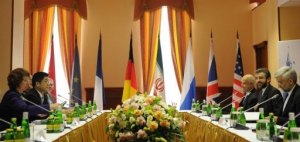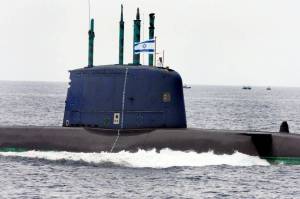Farrah Zughni
Delegates gathering at the United Nations this month to negotiate a treaty regulating the international arms trade will have to resolve a number of issues concerning the pact’s objectives and scope that remain unsettled since the UN General Assembly decided in 2009 to convene the conference, representatives from a broad range of countries said in June interviews and earlier statements.
The negotiations, which are scheduled to run July 2-27, are supposed to produce a global arms trade treaty (ATT) to set common standards for international transfers of conventional weapons and requirements for all states-parties to set up national control systems to regulate such transfers.
The countries will aim to reach consensus on a final treaty text largely on the basis of a working paper produced by Ambassador Roberto García Moritán of Argentina, the chair of the preparatory committee, after three years and four preparatory committee sessions involving states that supply and buy conventional arms. (See ACT, January/February 2012.)
Although García Moritán’s text from July 2011 “has no formal status,” it “does represent a range of issues” that have been raised since 2010, said Jo Adamson, British permanent representative to the Conference on Disarmament, in a June 20 e-mail to Arms Control Today. Therefore, “we aren’t starting from scratch,” said Adamson, who is the United Kingdom’s lead ATT negotiator. “We look forward to receiving a revised paper in due course to help to guide us through this next critical stage of the negotiations,” she said.
To succeed, the negotiators will need to balance a number of competing forces and political demands. Many weapons suppliers envision an ATT that will affirm trade in conventional weapons as “a legitimate commercial activity,” albeit “one that states have the obligation to regulate,” as Assistant Secretary of State for International Security and Nonproliferation Thomas Countryman put it in describing U.S. policy on the treaty in an April interview with Arms Control Today.
Many countries want to ensure the treaty augments their security and does not infringe on their ability to procure weapons for their defense. “The ATT should be an instrument which enhances the collective security of states, rather than detracting from it. In this respect, a mainstay of the ATT must be to uphold the right of states to acquire arms in order to defend themselves,” said an Israeli delegate Feb. 13 during the final preparatory committee.
Many other states, however, argue that an ATT must provide meaningful protections against illicit arms transfers that undermine human security (the security of individuals and communities) as well as human rights.
“It is often argued that national security interests need to be duly taken into account in the negotiation of the Treaty. However, from the Austrian perspective, human security is of equal importance and must appropriately resonate in the Treaty,” Alexander Kmentt, director for disarmament, arms control, and nonproliferation in the Austrian Federal Ministry for European and International Affairs, said in a June 21 e-mail to Arms Control Today.
An ATT, argued Kmentt, should prevent the illicit trade of arms, diversion of legal arms to the illicit market, and transfers “that contribute to serious violations of international human rights law and international humanitarian law, human suffering, armed conflict, transnational organized crime and terrorist acts.”
According to a report published in May by Oxfam, more than $2.2 billion worth of arms and ammunition have been imported since 2000 by countries operating under 26 UN, regional, or multilateral arms embargoes in force during this period.
Treaty Scope
To date, states have not reached agreement on a list of arms and activities that should be covered by an ATT. Most states agree that all of the weapons covered by the categories used in the UN Register of Conventional Arms should fall under the scope of the treaty. These include tanks, armored combat vehicles, artillery, combat aircraft and helicopters, warships, and missile systems. Most states, including the United States, are also in agreement that small arms and light weapons should be included in the treaty. The United States does not currently support the inclusion of ammunition within the scope, although many states do.
Some proponents of a more comprehensive treaty have pushed for clear definitions for the categories of weapons that most member states agree should be covered by the pact. Some also have suggested that specific weapons be listed in an ATT. Others point out that a detailed list of weapons would require that an ATT be regularly updated and refined to remain abreast of technological developments and that the time it would take to agree on specific definitions for that process could encumber the four-week-long negotiating conference.
“This is an arms trade regulation document, not a disarmament document, so there is no need for an extensive framework or extensive definitions to make it work,” Countryman said in an address at the Henry L. Stimson Center on April 16. “The outcome of the conference ought to be a good, short document that spells out principles of what states must do in implementing an effective [system of] arms export control.”
According to a tabulation by researchers with the nongovernmental organizations Control Arms Alliance and Reaching Critical Will, all but a handful of the more than 140 countries that have made statements on the issue support expanding the treaty’s scope beyond the UN register’s seven categories to include small arms and light weapons, such as revolvers, machine guns, portable anti-tank guns, portable anti-tank missile launchers and rocket systems, and mortars of calibers less than 75 millimeters.
“Many African countries have suffered from conflicts perpetuated by illicit trade and proliferation on small arms and light weapons,” Patrick Mugoya of Uganda said at the second preparatory committee session on March 1, 2011. “These conflicts result in loss of lives, cause untold suffering to the people, and negatively impact economic and social development.”
According to the UN Office for Disarmament Affairs, most present-day conflicts are fought predominantly with this category of weapons.
Only a few countries, including China, Egypt, and Iran, have voiced reservations over the so-called 7+1 proposal because they say that it would be difficult to monitor trade in small arms and light weapons. A number of other states, however, have said the absence of this category of arms from the final agreement is a deal breaker.
“Small arms and light weapons will have to be in the treaty. If not, there won’t be a treaty,” said a delegate from a Latin American country in a June 13 interview.
A 7+1+1 formula, which would include ammunition in the treaty’s scope, is also on the table for the negotiating conference. More than 100 countries strongly support the measure, according to the nongovernmental groups’ tabulation.
“It is the bullet and not the weapon that kills. Marking of ammunition is technically feasible and should not serve as an excuse for exempting ammunition on allegedly practical grounds,” argued Kmentt. “Given the robustness and longevity of certain types of these weapons, a continuation of unregulated trade in ammunition would further their use as the real ‘weapons of mass destruction’ in contradiction of the objectives of an Arms Trade Treaty.”
Nevertheless, major suppliers Russia and the United States have expressed doubt that ammunition can be adequately tracked following their sale. U.S. officials have said that they are open to suggestions on how to address this concern.
The United Kingdom, which for years has been a strong supporter of an ATT, has worked to forge a middle ground on this issue. “On ammunition, the UK favours its inclusion in the ATT as the weapons are useless without it,” said Adamson in the June 20 e-mail. “But we recognise that this is going to be a subject of negotiations. Monitoring ammunition is a difficult issue. Making ammunition subject to controls would be an important first step, without prejudice to whether it is covered in detail in Reporting under an ATT.”
In addition to the criteria that should be addressed in considering a transfer, the types of transfers to be regulated are also in question. UN General Assembly Resolution 64/48, which was adopted in December 2009 and mandated the ATT negotiation this month, calls for “a legally binding instrument on the highest possible common international standards for the transfer of conventional arms.” A key point of controversy in the run-up to the July meeting is what the term “transfer” encompasses.
Most delegations have argued that an ATT should cover arms brokering. The United Kingdom, for instance, says transit and transshipment, loans, and gifts as well as temporary imports and exports for demonstration and exhibition should be included under the treaty’s scope. Of the world’s 192 governments, only 52 have laws regulating arms brokers, and less than half of these have criminal or monetary penalties associated with illegal brokering, according to an October 2011 Oxfam briefing paper.
“These are the main types of activity where diversion into the illicit market can occur. Controlling these forms of entry into the illicit market ensures that the treaty regulates the entire arms trade process without leaving any gaps which can be exploited,” Adamson said.
In the run-up to the negotiating conference, China and Iran have expressed objections to this proposal.
Criteria for Transfers
A key question in the negotiations will be whether the treaty will require states to withhold a transfer if their export control review determines there is a substantial risk that it could lead to human rights violations or whether an ATT will simply require states to “take into account” such potential risks but still allow a transfer authorization to proceed if the supplier state determines that, on balance, larger economic or security concerns merit the transfer.
Some countries favor strong language that would require states not to authorize transfers that would lead to human rights or humanitarian law violations or could circumvent internationally recognized arms embargoes.
“The ATT should establish clear, objective and non-discriminatory norms to prevent the transfer of arms when there is a clear and reasonable ground to believe that such weapons will be used in violation of international human rights law or international humanitarian law,” said delegations from nine countries, including Argentina, Chile, and Colombia, in a joint statement on July 21, 2010. Some countries also want potential sales to be considered in light of their impact on a recipient country’s socioeconomic development and corruption.
Critics of this position argue that implementing such criteria is neither an objective nor straightforward process. “There are ranges of what people think are human rights,” Ann Ganzer, director of the U.S. Department of State’s Office of Conventional Arms Threat Reduction, said at the April 16 Stimson Center event. “I attended a meeting a day after someone was executed in Texas and had several Europeans accuse me of representing a country that was a human rights violator,” she recalled.


